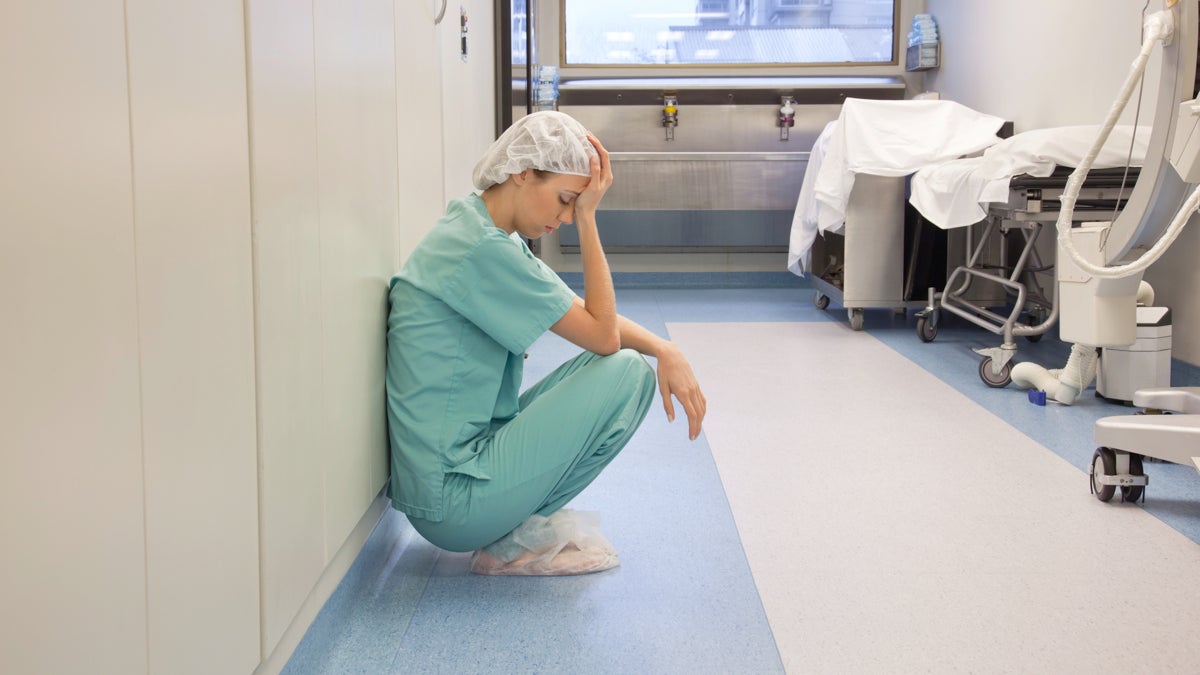Majority of doctors work while sick, CHOP survey finds
Listen Photo via ShutterStock) " title="tired doctor" width="1" height="1"/>
Photo via ShutterStock) " title="tired doctor" width="1" height="1"/>
(Photo via ShutterStock)
A new study has found that 83 percent of doctors, physician assistants, nurse practitioners, and other high-level caregivers end up working at least once a year while ill, despite acknowledging that it puts patients at risk.
Researchers at the Children’s Hospital of Philadelphia asked more than 900 health care workers at the hospital how often — and why — they might choose to work sick to uncover the scope and driving forces behind the problem.
“Many of the very common themes were a sense of duty or obligation to come to work,” said Julia Sammons, medical director of CHOP’s department of infection prevention and control, and the senior author of the report. “Many described an interest in not wanting to let their patients down, not wanting to let their colleagues down.”
For instance, one emergency department attending physician who was surveyed wrote, “There is an unspoken understanding that you probably should be on your deathbed if you are calling in sick. It inconveniences my colleagues, is complicated to pay back shifts, and makes me look bad to do so (like I am weak or something). It is much, much less stressful to suck it up and come in sick than call out.”
Another physician expressed concern that others would not be able to properly cover the absence after experiencing one such “disaster” before.
More than 90 percent of respondents said not letting down patients, co-workers, or not having enough staff available were important reasons to work with symptoms. About 64 percent were worried about continuity of care and just 21 percent reported not having enough sick leave. The results were published this week in the journal JAMA Pediatrics.
The research suggests changes in how staff call in sick, such as having a third party arrange for replacement care, could cut down on the bad practice — something CHOP is already testing.
“Cleaning your hands and not coming to work sick seem like easy things to do,” said Sammons. “But oftentimes we find that they are much more challenging and complex to reach complete adherence and compliance.”
WHYY is your source for fact-based, in-depth journalism and information. As a nonprofit organization, we rely on financial support from readers like you. Please give today.

